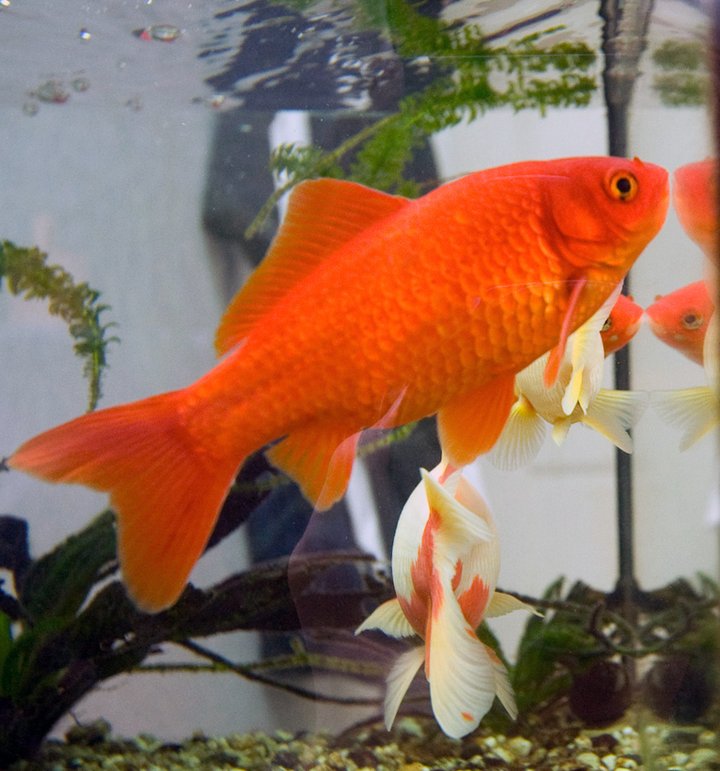“How
we apply our attention to different tasks depends very much about
what the individual brings to that situation.”
— Dr. Gemma Briggs, Psychology Prof., Open University UK
###
Did you get this far? You’ve beaten the odds; your ability to focus on a single task is greater than average. I’d congratulate you, except that’s BS.

Goldfish focusing. (Heptagon, public domain)
You may have seen it, four years ago, headlines all over the place (Time, NYT, the Guardian…): “Human Average Attention Span Now Less than that of a Goldfish.” Being a skeptical reader of such publications, not to mention LoCO, you probably sniffed and moved on, right? I mean, c’mon! What the hell is an average attention span? Are we driving? Watching the news? Texting our BFF? Worrying about taxes or the shutdown or whether we’re in and/or out of Syria? And what’s that goldfish doing, meanwhile, unwittingly competing with mere humans, focusing on whatever goldfish are supposed to focus on?
(Still with me? Sorry, keep wandering off. I love this song, who doesn’t? Africa. Didja see this?)

Oh yea, that study. We now—this was in 2015—attend to a single task for eight seconds, compared with 12 seconds in 2000. (The goldfish held steady at nine seconds, apparently.) These numbers come from the Consumer Insights team of Microsoft Canada, who, according to the news reports, “surveyed 2,000 Canadians and also studied the brain activity of 112 people as they carried out various tasks.”
Well no. (Stay with me, almost there.) The figures are in the study alright, but they’re not Microsoft’s. (And no, I didn’t read it all—too short attention span—I’m in debt to a BBC reporter with the tenacity to follow this through to the bitter and unsurprising end.) The 12 seconds/eight seconds numbers come from a report by Statistic Brain (“…we pride ourselves on providing impartial, broadly aggregated, and reputable data sets on current and historic statistics.”) Who in turn cited data from the National Center for Biotechnology Information at the US National Library of Medicine, and the Associated Press. Neither of whom had any record of research to back up the statistics. Yup, fake news. Nothing to see here.
Couldn’t we just take the common sense view? Our brains are flexible, adaptable, multi-purpose machines “designed” (you know what I mean) to (a) survive and (b) promote reproduction. Everything else is icing on the cake. We’re doing fine. The kids are doing fine. If attention spans were that bad, no one would be reading books anymore. (More books than ever are being published—over a million annually just in the US. OK, most of them are self-published. But still…)
Meanwhile goldfish are getting smarter. Data to follow.
CLICK TO MANAGE